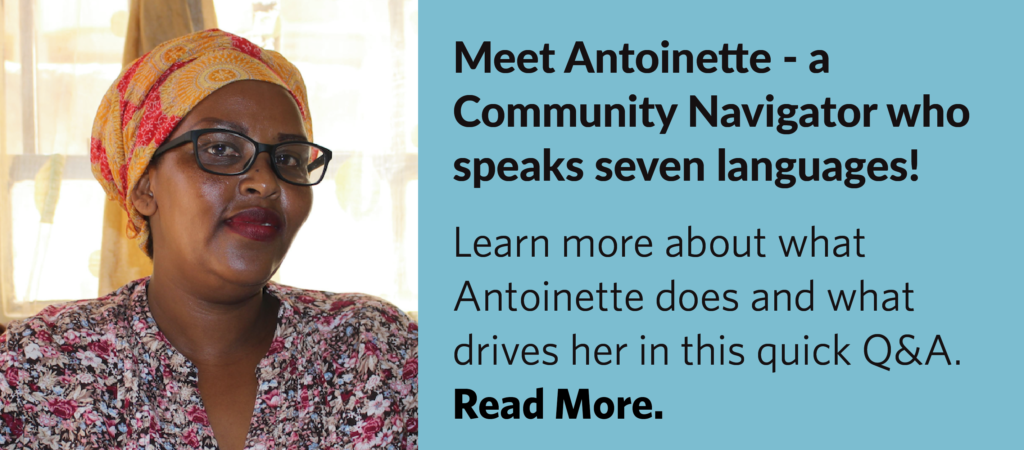RefugePoint’s team of 13 Community Navigators support health education and provide information to about 10,000 refugees and locals per year.
Who knows the needs of a community best? The people who live and work in that community. RefugePoint’s team of Community Navigators (CNs), now comprised of 13 team members (April 2019), are refugees who live and work in the many various areas of Nairobi, and who have been engaged and trained by RefugePoint to provide valuable information about health and wellness to their respective communities. CNs represent the many diverse refugee and host nationalities living in and around Nairobi. Trained on topics including community-based protection, vulnerability assessment, health, wellness, psychosocial support, business training, child protection, and livelihoods, CNs are an essential part of the RefugePoint team.

CNs participate in public health campaigns run by the local Sub-County Government as part of RefugePoint’s partnership with the local health authority. These campaigns include immunization drives, public information campaigns
CNs deliver basic health information on sanitation, reproductive health, and immunizations for children below the age of 5. They refer cases to local clinics (or the RefugePoint clinic), and make referrals for other services, such as where to go for registration with the government, and provide interpretation at government clinics as necessary. They also play a major role in filling medical prescriptions at the RefugePoint clinic clients who cannot afford medication at local clinics and hospitals.
While they are not legal advocates, CNs do provide referrals and information to new arrivals, and assist refugees to find resources regarding their questions about their rights and legal status. They refer refugees to community-based structures as well as to partner organizations who offer a range of services to refugees. Such partners include UNHCR, Danish Refugee Council (DRC), HIAS,
While working with the urban refugee population in 2011, RefugePoint found that refugees were having trouble accessing health services at government facilities. Among the problems cited by patients were language barriers and lack of access to quality care due to socio-cultural differences that influence medical practices (particularly among Somalis). CNs are able to engage, in their own language, with the community about sensitive health issues that intersect with cultural practices (such as family planning). The primary goal of CNs is to improve the general health and well-being of the refugee and host population in Nairobi, and since the Community Navigator program began in 2012, CNs have had a significant positive impact on the health and well-being of our clients.